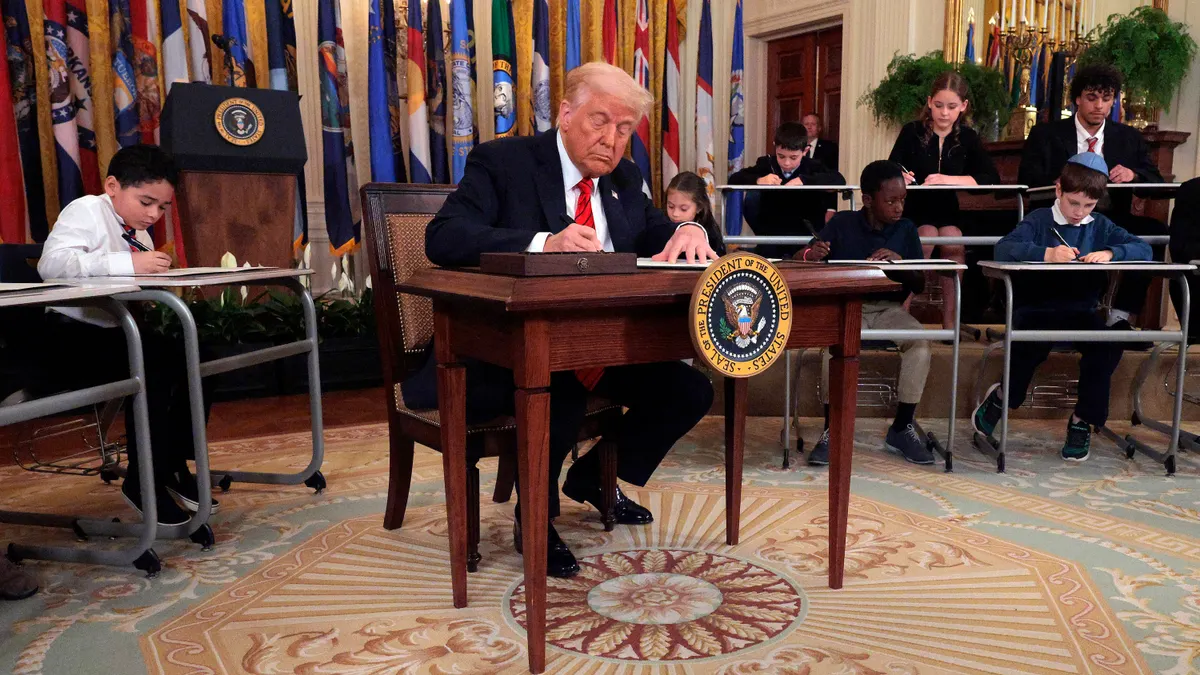When most educators think about teaching their students financial literacy skills, balancing checkbooks, and paying bills on time are likely at the top of the list. But having some investing skills — for example, understanding how the stock market works, what a mutual fund is, and how a 401k is structured — is just as crucial to their financial health.
That was the main thought professors at Buffalo State University had about 40 years ago when they developed what’s now known today as The Stock Market Game. Designed for college students, the online investing game today reaches 600,000 people — aimed at students in grades 4-12 and their teachers — across all 50 states. It is now run by the Securities Industry and Financial Markets Association (SIFMA) Foundation, which took it over in 1977.
Students compete regionally, against other pupils, and there are awards given across 200 to 250 different regions, with separate winners at the elementary, middle and high school levels, SIFMA Foundation President Melanie Mortimer told Education Dive.
“It’s not an accident that we honor and recognize so many students,” she said. “It’s exciting to get to reward students for this kind of academic investment in themselves.”
To win, students are charged with growing they portfolio over a period of time, anywhere from 14 weeks to a semester, and they start with $100,000 in virtual money — not much less than the average investor has saved for their own retirement today.
Financial education needs
As of 2017, the average balance in a Vanguard defined contribution account was $103,900, according to its June report, “How America saves 2018.” The median balance was just $26,300, according to the financial plan administrator.
Americans do appear to taking their financial future a bit more seriously, according to the National Foundation for Credit Counseling, which runs an annual survey on investors’ financial health. The group found that adults who use a 401k said they were more likely to save or invest their money in 2018 than in 2017 — a jump that went from 32% to 37%.
In The Stock Market Game, retirement isn’t the entire focus, and students end up learning much more than just how to invest. Educators can tie the financial literacy component to other subjects, as well — from global affairs to the health of the planet.
The SIFMA Foundation just aligned with Newday Investing, a financial firm that focuses on investments with companies that follow sustainable practices. Teachers will now gain access to lesson plans, videos and news feeds, as well as scientific content, while students can now get information through the game about socially responsible investing options.
Classrooms will be able to research a company’s impact on the climate or animals, and also get an alert if they’ve chosen an investment from a noted sustainable company, said Newday CEO Doug Heske. He told Education Dive he hopes students can become “aware of a better way, and a different way to invest.”
Financial know-how and SEL
Financial literacy is a skill that does more than help students invest for their futures. Students who go through the competition finish with more self-confidence, said Mortimer. That skill can also help children strengthen their belief in themselves and their abilities, according to research.
The National Endowment for Financial Education (NEFE), which has provided high school teachers with financial literacy curriculum since 1984, found that 66% of students had more confidence in making financial decisions immediately after finishing the curriculum — and 79% had confidence three months later.
Self-confidence in one area can flow into others, helping students build a stronger sense of self-awareness, “and a ‘growth mindset,’” as the Collaborative for Academic, Social and Emotional Learning group has long noted. It’s a competency educators hope to impart in their students as well — and weaving this skill in with some financial know-how is a cross-curriculum opportunity for administrators.
“This is a domain that’s been saved for adults in so many ways,” said Mortimer. “And when students start to learn the jargon, start to get excited about capital markets, and really enter a world of discussion and conversation, it gives kids newfound confidence.”



















